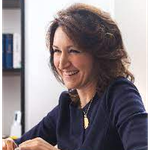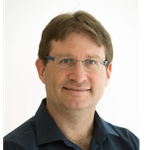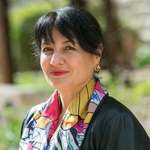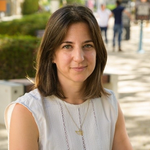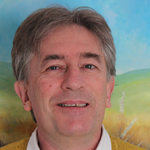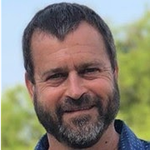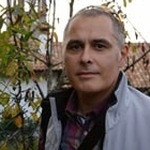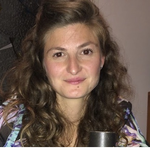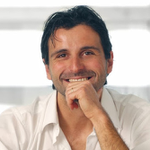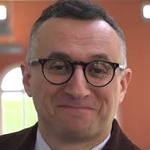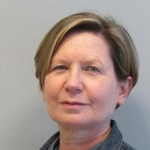- Gathering
- Greetings
Cristina Bettin•Chaim Hames•Jeff Kaye•Sergio Barbanti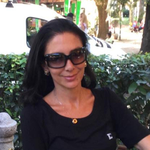
Cristina Bettin
Chairperson at Association of Italian Scholars and Scientists,Ben Gurion University of the Negev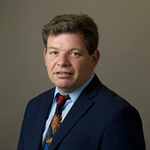
Chaim Hames
Rector at Ben Gurion University of Negev, Israel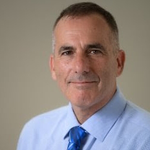
Jeff Kaye
Vice-President for Public Affairs at Ben Gurion University of Negev, Israel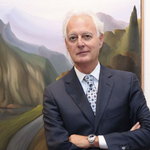
Sergio Barbanti
Ambassador at Embassy of Italy in Israel
- "Trends, Causes and Contributing Factors of the Vaccine Hesitancy: a Global Overview"
Fidelia CasciniSeveral countries in the world have made a third dose of Covid-19 vaccine available. Epidemiological data shows that unvaccinated people are still much more likely to contract Covid-19 and far more likely to experience symptomatic disease, while vaccines drastically reduce the risk of hospitalization and death from the coronavirus. Despite high rates of vaccination being required worldwide to establish a herd immunity and stop the current COVID-19 pandemic evolution, vaccine hesitancy has been revealed as a major barrier across different populations remaining high and ranging widely among different populations, across different countries, geographical and cultural contexts.
Vaccine hesitancy is a multi-factored phenomenon affected by cognitive, psychologic, socio-demographic, political and cultural factors. However, despite these differences, the main barriers contributing to vaccine hesitancy are similar. The most frequent ones are a fear of the safety and side effects of the vaccine, the vaccine’s effectiveness, and the fast pace of the vaccine’s development compared with previous vaccines.
We should find new and better ways to answer to people’s needs, and especially to address the four factors affecting people before feeling comfortable with and accepting vaccinations. These are: 1) time to think (the willingness to be vaccinated increases when people are offered to wait more time until they receive the vaccine.); 2) awareness of risks and benefits (a higher acceptance would be based on easy-to-understand and reliable information); 3) personalization about choices (people show personal preferences over different vaccine candidates); 4) familiarity with providers (people ask for professionals and providers to be able to capture their trust)”. - "From Science to Policy Making: Lesson from Covid 19 and Beyond"
Nadav DavidovichGlobal health threats including epidemics and climate change, know no political borders and require health in all policies approach, moving from national to regional and global collaboration if they are to be dealt with effectively.
The presentation will discuss several aspects of pandemic response, starting from the interaction between scientific advisory committees and policy makers, questions of trust among the various stakeholders and pressing issues including health inequities, the influence of politics, and the role solidarity in public health practices and policy-making. After examining Israel response, I will analyze the pandemic from global perspective and the need to address structural and systemic inequalities, focusing on COVID vaccinations as a fundamental ethical and moral issue of fairness, between and within countries. - "New Perspectives in a Medical, Scientific and Ethical Approaches for Immune System Related Diseases"
Francesca Levi SchafferSome background of interactions between science and society. Scientist responsibilities. Why is ethics needed in human subjects/human samples research. The need of Ethical codes. Bioethics in biomedical research. Historical justification for ethical guidelines. Nuremberg code, Helsinki Declaration, ethical justifications. The example of Covid.
- "Disaster Resilience: a new scholarly field"
Stav ShapiraDisaster resilience is a relatively new scholarly field, which has emerged and assumed importance through the past two decades. Disaster resilience is a multifaceted and complex concept that generally relates to the capacity, ability, or competence to cope with stress, a crisis, or a disaster and bounce back to the preexisting conditions of life. Different types of resilience have been identified in the scientific literature: ecological, environmental, institutional, infrastructural, organizational, economic, social, community, familial, and individual. The current presentation will review the development of the concept disaster resilience and its various dimensions while integrating findings and insights from previous disaster events worldwide. Existing tools and methods for measuring disaster resilience will be reviewed; as well as initiatives and dedicated programs for enhancing disaster resilience.
- Discussion
- Lunch Buffet
- "New Varieties for Facing the Future Climatic Scenario"
Luigi CattivelliThe future climatic scenario for the Mediterranean region is characterized by elevated CO2, higher average temperatures and reduced rainfall, all factors that heavily impact on plant life and, in turn, on agricultural productivity. If climate conditions are going to change the cultivated varieties must change accordingly. The varieties for the future climatic scenario should carry specific adaptation traits, tolerance to elevated temperatures, improved water use efficiency and new sources of disease resistance capable to face the new pathogen-strains that also evolve in response to climate change. To cope with the climate changes, plant breeders needs new traits/genes that can be either found in the vast natural diversity of crop species or generated by new breeding techniques (genome editing and cisgenesis). In this contest a deep knowledge of the genome and of the pangenomes of crop plants are essential components to assure food in the future.
Barley and durum wheat are major crops in the Mediterranean region and the true historical bread shared on the tables of the first human societies of the Fertile Crescent. Since durum wheat and barley are commonly cultivated in marginal lands of some of the regions most affected by climate change, they certainly play a paramount role in view of the harshening weather conditions as well as the increasing human population and South-North migration fluxes.
The talk will present how genetic diversity and new breeding techniques can be used to select the barley and durum wheat varieties for the future. - "Effects of Global Climate Change on Biodiversity-Known and Unknown in Time of Uncertainty"
Marcelo SternbergThe Mediterranean region is both a global biodiversity hotspot and one of the biomes most strongly affected by human activities. Ecologists and land managers are increasingly required to advise on threats to biodiversity under global climate change. Within this framework, the magnitude and frequency of extreme weather events such as drought, heat waves, and longer dry spells are expected to increase in Israel and the whole Middle East. Understanding the impact of changes in rainfall patterns, rainfall-soil moisture relationships, seasonality and extreme events on biodiversity is critical for the sustainable management of regional natural resources. These extreme events have the potential of producing changes in biodiversity and ecosystem services conferred to humans. Despite the importance of these issues, current local knowledge about the effects of extreme climatic events on Mediterranean shrubland ecosystems in the region is still very limited.
Here I will discuss the challenges we confront under the uncertainty imposed by global climate change in the region. Additionally, I will present a study that considers the effects of extreme drought on functional diversity and ecosystem function on a Mediterranean shrubland ecosystem. This study is carried out under field conditions and simulate expected changes in rainfall distribution patterns at the LTER station Matta in the Judean Hills. This experimental site was established 21 years ago, being today one of the world oldest research stations studying the effects of climate change on natural ecosystems. - "Food Security in a Changing Climate Scenario: Lessons from the Desert"
Aaron FaitGlobal warming and climate change have become a primary concern worldwide since the past two decades. The world is exposing a gradual rise in heat wave frequency and in the number of warm days and nights, leading to a global surface temperature change exceeding 2^∘C by the end of the 21st century. Furthermore, changes in precipitation will become more erratic, making a likely increase in annual mean precipitation in high latitudes and the equatorial Pacific, while in mid-latitude and subtropical dry regions the mean precipitation is expected to decrease. This scenario will exacerbate the continuous decline in availability and productivity of agricultural land in the Mediterranean basing and the resulting decline in food productivity and quality. Taking this into account and considering its importance to agriculture, the Negev plateau could be used as a model for climate change study in crops. The advantages of field trials in arid regions are: (i) reliable control of water input; (ii) low air humidity; and (iii) a relatively low intra- and inter-seasonal variability. The goal is (a) to generate guidelines for the selection, introduction and cultivation of crops in Mediterranean regions affected by climate change, and (b) fill the scientific knowledge gap on cultivation in semiarid conditions and in a changing climate, using the Negev as a model system.
- "The Amorality of the Global Food System: Investigation of the Food Security of Indigenous Peoples"
Chiaretta GiordanoThe food security of indigenous peoples from a multidisciplinary perspective, reviewing anthropological, political, and legal literature. Throughout the use of anthropological literature, because of their anemic belief, for indigenous, traditional food serves as intake of healthy nutrients and representation of their way of being and belonging for the members of the community. Medical data prove that indigenous peoples relocated in urban areas with limited or denied access to traditional food and traditional food ceremonies cause an increment of malnutrition, mental health issues, and related chronic diseases in most of the relocated indigenous communities.
The global food system, together with the political and international law approach to guarantee food security. The understanding of food security into food quantity rather than culturally adequate qualitative food is one of the main reasons of food insecurity that many indigenous communities are experiencing. The use of legal cases from different jurisdictions which involve indigenous communities, proves the amorality towards promoting food security of all human beings as well as the substantial equality regarding the right to food. A right to so-called cultural food must be recognized to guarantee stable food security in the long term and fulfill the dignity, food justice, and equality of indigenous peoples. - Discussion
- Coffe Break
- "Microbes, environments and humans. Encounters between anthropology and microbiome research in times of biosocial challenges"
Roberta Raffaeta’The lecture will illustrate the HealthXCross project, funded by the European Research Council (ERC). The project brings into an experimental dialogue socio-cultural anthropology with microbiome research. The project is exploring, through ethnography and participative methods, scientific platforms related to microbiome research and One Health. The aim of the project is to understand how the ‘biological’ and the ‘socio-cultural’ domains intersect, thanks to technology, in redefining health at an ecosystemic scale. The lecture will define what is anthropology and how it may intervene into science, the details of microbiome research, how these enter into dialogue with an anthropological approach and why this is important and needed in times of profound ecological, social and health transition.
- "Social Media Data for Environmental Sustainability: Ethical Issues and the Role of the Researchers"
Andrea GhermandiSocial media data are transforming social science research in sustainability by enabling high-fidelity monitoring of social-ecological changes. Thanks to their ubiquity in contemporary ‘network societies’, social media offer a unique window into complex social-ecological systems by providing insight into the co-production of environmental values and knowledge, perceptions and interactions with the natural world, as well as ecological patterns and processes. Research in this field, however, faces challenges with regard to restrictions in data accessibility, and is increasingly confronted with ethical concerns due to potential intrusion into the private sphere of social media users. Based on a comprehensive analysis of the field, I will discuss here how social media data may play an irreplaceable and novel role in (a) examining value co-construction and relational values, (b) temporal explicit and (quasi) real-time analyses of social-ecological change and (c) large-scale, high-resolution spatial analyses. I will highlight potential future research innovations as well as threats to data access, in face of a quickly changing landscape of terms and conditions by social media companies and increasing public mistrust toward social media-based research. I will conclude by highlighting key ethical principles for the use of social media data in environmental and sustainability research and arguing that sustainability researchers have a unique role to play in establishing wide-ranging cooperation between SM companies, academia, and society, as well as unique duties in ethical use of the data.
- "Digital Citizenship: some Ethical Challenges"
Mirko GarasicBy looking at various global polis and smart cities ranging from South Korea to Germany -which are seen as virtuous examples of direct democracy, of technological activism capable of substantially reducing gas emissions from private vehicles and using 5G also as a life-saving tool (especially when connected to medical emergency situations such as the recent pandemic), the intention of this talk is to engage with some of the least appealing aspects of this move into the digital dimension that citizens from all over the world are seeing as we speak. All the fascinating developments are offset by various types of concerns related to this way of conceiving and developing cities and the political and social life in them. First, our privacy seems destined to be annihilated once and for all, and that can certainly worry - especially if you envision a dystopian future in which information concerning our lives is in the hands of a not-so-benevolent dictator. A further concern that these cities can give us, is that they underline in an even more evident way how the digital divide in the not-too-distant future will end up making life (even politically) completely different for a citizen.
- "Cultural Heritage and Society: A Different Dialogue"
Elisabetta BoarettoThe preservation of cultural heritage is of much interest for the public and for the future generations. The strategies to preserve and protect cultural heritage are part of a wide effort that involves many disciplines, scientific methods and public administration. Part of loss of the cultural heritage is due to the illegal market of antiquities often taking advantage of war crisi.
Often scientific analysis are applied to authentify the objects and increase the price.
As radiocarbon dating is one of the most applied analyses used for authentification of antiquities, it became imperative for the scientific community to take steps in order to avoid illegal market of antiquities and exploitation of scientific analysis. This might apply also to collections in museum that have been obtaiend as a gift. Should the objects been reimpatriated after being scientifically authentified? Is there also another solution? The steps taken by the radiocarbon dating community are essential and might be of guide for other scientific disciplines related to cultural heritage studies.
Prof Boaretto graduate in Nuclear Physics at the Univerisity of Padua. She obtained the PhD in Physics at the Hebrew University of Jerusalem. Her research in is focus on solving questions in archaeology using scientific methods. She is the Director of the Kimmel Center for Archaeological Science and the Head of the Dangoor Research Acclelerator Mass Spectrometer Laboratory for Radiocarbon Dating. She has co-direct the excavation at Boker Tachtit studying the chronology related to the arrival of Modern Human in the Levant. She has developed new methods to study the archaeological record and characterizing the materials in relation to past activities. She is particularly interested in understanding the effect of past climate changes on past cultures. - Discussion
- Concluding remarks
Cristina Bettin
